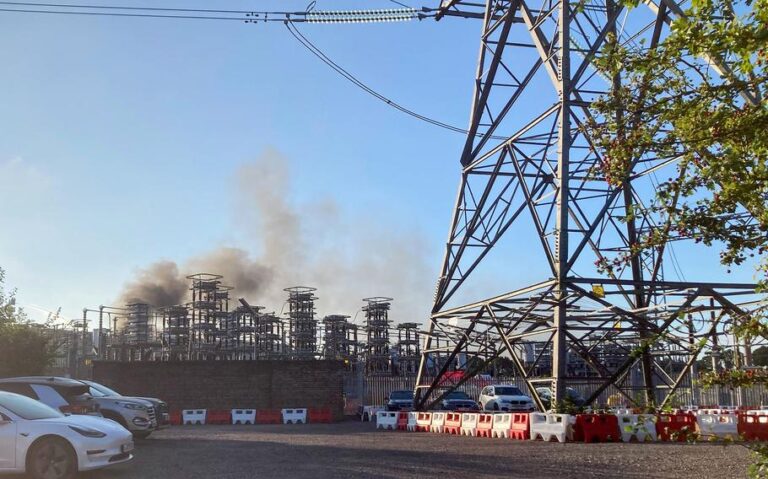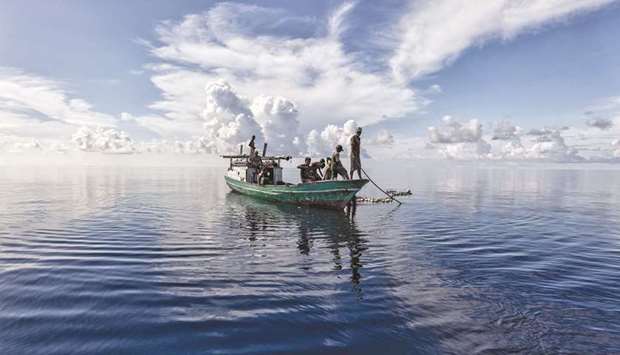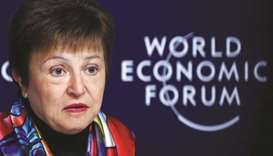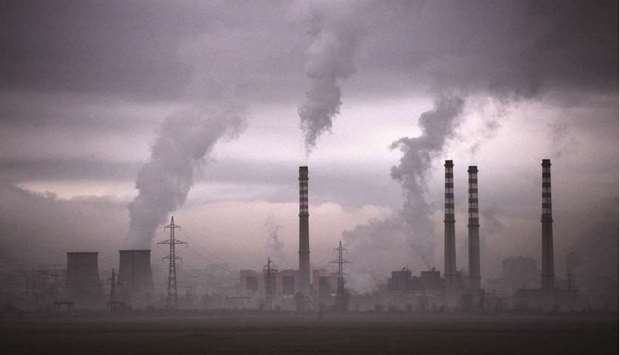The West’s wasted crisis

The silver lining in the gloomy cloud of the pandemic was the opportunity it gave the West to mend its ways. During 2020, rays of light shone through. The European Union was forced to contemplate a fiscal union. Then, it helped remove Donald Trump from the White House. And a global Green New Deal suddenly appeared less far-fetched. Then 2021 came along and drew the blackout curtains.
Recently, in its financial stability review, the European Central Bank issued an angst-ridden warning: Europe is facing a self-perpetuating debt-fueled real estate bubble. What makes the report noteworthy is that the ECB knows who is causing the bubble: the ECB itself, through its policy of quantitative easing (QE) – a polite term for creating money on behalf of financiers. It is akin to your doctors alerting you that the medicine they have prescribed may be killing you.
The scariest part is that it is not the ECB’s fault. The official excuse for QE is that once interest rates had fallen below zero, there was no other way to counter the deflation menacing Europe. But the hidden purpose of QE was to roll over the unsustainable debt of large loss-making corporations and, even more so, of key eurozone member states (like Italy).
Once Europe’s political leaders chose, at the beginning of the euro crisis a decade ago, to remain in denial about massive unsustainable debts, they were bound to throw this hot potato into the central bank’s lap. Ever since, the ECB has pursued a strategy best described as perpetual bankruptcy concealment.
Weeks after the pandemic hit, French President Emmanuel Macron and eight other eurozone heads of government called for debt restructuring via a proper eurobond. In essence, they proposed that, given the pandemic’s appetite for new debt, a sizeable chunk of the mounting burden that our states cannot bear (unassisted by the ECB) be shifted onto the broader, debt-free, shoulders of the EU. Not only would this be a first step toward political union and increased pan-European investment, but it would also liberate the ECB from having to roll over a mountain of debt that EU member states can never repay.
Alas, it was not to be. German Chancellor Angela Merkel summarily killed the idea, offering instead a Recovery and Resilience Facility, which is a terrible substitute. Not only is it macroeconomically insignificant; it also makes the prospect of a federal Europe even less appealing to poorer Dutch and German voters (by indebting them so that the oligarchs of Italy and Greece can receive large grants). And, despite an element of common borrowing, the recovery fund is designed to do nothing to restructure the unpayable debts that the ECB has been rolling over and over – and which the pandemic has multiplied.
So, the ECB’s exercise in perpetual bankruptcy concealment continues, despite its functionaries’ twin fears: being held to account for the dangerous debt-fueled bubble they are inflating, and losing their official rationale for QE as inflation stabilises above their formal target.
The scale of the opportunity Europe has wasted became obvious at the recent United Nations Climate Change Conference (COP26) in Glasgow. How could EU leaders lecture the rest of the world on renewable energy when rich Germany is building lignite-fueled power stations, France is doubling down on nuclear energy, and every other EU member state saddled with unpayable debts is left to its own devices to deal with the green transition?
The pandemic gave Europe an opening to devise a credible plan for a well-funded Green Energy Union. With a eurobond in place, and thus liberated from the purgatory of perpetual bankruptcy concealment, the ECB could be backing only the bonds that the European Investment Bank issues to fund a Green Energy Union. So, yes, Europe blew its opportunity to lead the world by example away from its addiction to fossil fuels.
We Europeans were not alone, of course. As US President Joe Biden was landing in Glasgow, the usual corrupt congressional politics back home were uncoupling his already much-shrunken green agenda from a very brown infrastructure bill, placing climate change on the back burner. While the United States, unlike the eurozone, at least has a Treasury Department that works in tandem with its central bank to keep debts sustainable, it, too, has missed a magnificent opportunity to invest heavily in green energy and the high-quality jobs implied by the transition from fossil fuels. How can the West expect to persuade the rest of the world to embrace ambitious climate commitments when, after two years of waxing lyrical about the green transition, Biden and the Europeans arrived in Glasgow virtually empty-handed? As 2021 winds down, Western governments, having wasted their chance to do something about the clear and present climate emergency, are choosing to focus on exaggerated worries. One is inflation. While the acceleration in price growth must be checked, the widespread comparisons with the stagflation of the 1970s are ludicrous. Back then, inflation was essential for a US actively blowing up the Bretton Woods system in order to maintain the dollar’s “exorbitant privilege.” Today, inflation is not functional to American hegemony; rather, it is a side effect of the US economy’s reliance on the financialisation process that imploded in 2008.
The West’s other constructed panic is China. Initiated by former US President Donald Trump, and zealously perpetuated by Biden, the emerging new cold war has an unacknowledged purpose: to enable Wall Street and Big Tech to take over China’s finance and technology sectors. Terrified by China’s advances, like a functioning central bank digital currency and a macroeconomic stance that is vastly more sophisticated than their own, the US and the EU are opting for an aggressive stance that is a mindless threat to peace and to the global co-operation needed to stabilise our planet’s climate. A year that began hopefully is ending grimly. Western political elites, unable (and perhaps unwilling) to turn a deadly crisis into a life-preserving opportunity, have only themselves to blame. — Project Syndicate
? Yanis Varoufakis, a former finance minister of Greece, is leader of the MeRA25 party and Professor of Economics at the University of Athens.








NEW YORK – One way or another, central banks’ behavior will have to change with the climate. But it should evolve only because climate change will create new constraints and drive new forms of public and private economic activity. Central banks’ primary function should not change, nor should they adopt “green” targets that could undermine the pursuit of their traditional objectives: financial stability and price stability (which in the United States is a dual mandate of price stability and maximum employment).
Climate change will be a defining global issue for decades to come, because we are still a very long way from ushering in a low-carbon, climate-resilient world. Three features of our greenhouse-gas (GHG) emissions will impede the appropriate response. First, the benefits (cheap energy) are enjoyed in the present while the costs (global warming) are incurred in the future. Second, the benefits are “local” (they accrue to the GHG emitter) while the costs are global – a classic externality. Third, the most efficient methods of limiting GHG emissions impose disproportionate burdens on developing countries, while the task of compensating poor countries remains politically fraught.
The most efficient way to address climate-change externalities is through targeted fiscal and regulatory measures. Pigouvian taxes or tradable quotas would create the right incentives for reducing GHG emissions. Carbon taxes, as advocated by William D. Nordhaus of Yale University, must become the global norm (though it is difficult to envisage a global carbon tax working without a significant transfer of wealth from developed to developing countries). Rules and regulations targeting energy use and emissions can complement green taxes and quotas, and public spending can support research and development in the green technologies that we will need.
What does not belong in the mix is a green mandate for central banks. To be sure, legal mandates can change, and central banks have a well-established tradition of exceeding them. The European Central Bank’s financial-stability mandate is secondary to – “without prejudice to” – its price-stability mandate. This did not prevent it from acting decisively and quite effectively during the global financial crisis, the eurozone sovereign debt crisis, and the COVID-19 crisis, even when this meant overriding the price-stability target in 2021 and likely also in 2022. Moreover, Article Three of the Treaty on European Union explicitly provides for “a high level of protection and improvement of the quality of the environment,” so it is easy to see how the ECB’s financial-stability and monetary instruments could be used to target climate change.
But that does not mean they should be used in this fashion. The standard monetary-policy instruments (one or more policy interest rates, the size and composition of the central bank’s balance sheet, forward guidance, and yield curve control) are typically used to target price stability or the dual mandate. Judging by the results, there is no spare capacity in the monetary-policy arsenal.
These monetary-policy instruments impact financial stability as well, and not always in desirable ways. In addition, capital and liquidity requirements underpin micro- and macroprudential stability; and central banks can impose additional conditions on the size and composition of regulated entities’ balance sheets. As the lender and market maker of last resort, the central bank can choose its eligible counterparties, the instruments accepted as collateral or bought outright, and the terms and conditions on which it lends or makes outright purchases.
There is no doubt that climate change affects a central bank’s price-stability objective, including through current and anticipated changes in aggregate demand and supply, energy prices, and other channels. Climate change also could significantly alter the transmission of monetary policy, and thus will have to become an integral part of the models that guide central banks in pursuit of their primary objectives.
Green issues also affect financial stability in major ways. Extreme weather events can damage assets held by financial institutions and their counterparties. Climate-mitigation and adaptation efforts can depress the value of assets, potentially leaving many “stranded” or worthless. A central bank’s financial-stability mandate requires it to recognize and respond appropriately to the foreseeable effects that climate change will have on asset valuations and on the liquidity and solvency of all systemically important financial entities and their counterparties in the real economy.
But anticipating and responding appropriately to these risks now and in the future does not mean that higher capital or liquidity requirements should be imposed on “brown” loans, bonds, and other financial instruments. Financial-stability risks and global-warming risks are not perfectly correlated. Moreover, there are no redundant financial-stability policy instruments, and capital and liquidity requirements have a clear comparative advantage in pursuing financial-stability objectives, just as carbon taxes and emissions-trading systems have a clear comparative advantage in pursuing and achieving “green” objectives.
The shocks and disruptions caused by climate change will complicate central banks’ pursuit of their price-stability and financial-stability mandates. The last thing they need is to feel pressure to load additional objectives on their limited instruments. Just as it makes no sense to use carbon taxes or emissions-trading schemes to target financial stability, it makes no sense to use capital and liquidity requirements to address global warming. The appropriate tools to address climate change – fiscal and regulatory – are well-known and technically feasible. What is missing is the foresight, logic, and moral courage to deploy them.